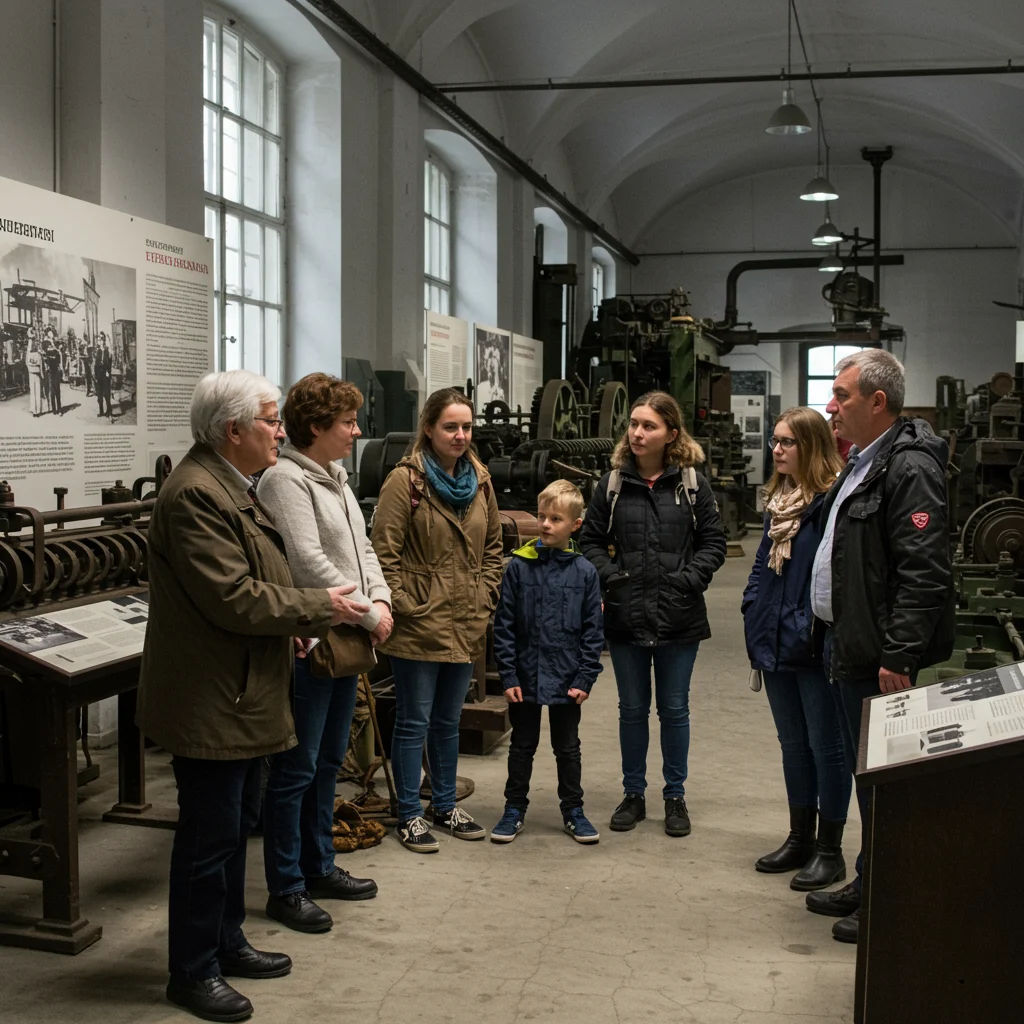Introduction to Schindler’s Factory Guided Tour in a Small Group
A visit to Schindler’s Factory in Krakow offers a powerful, immersive journey through one of the most significant stories of World War II. Touring this historic site in a small group allows for deeper engagement, meaningful reflection, and a truly memorable experience. In this guide, we will share everything you need to know about joining a small group guided tour, from what to expect on-site to practical tips for planning your visit.

Why Visit Schindler’s Factory?
Schindler’s Factory is more than just a museum; it is a living memorial to the resilience, courage, and humanity displayed during Krakow’s darkest days. Visitors come here not only to learn about history but to connect emotionally with the stories of survival and hope that unfolded within these walls.
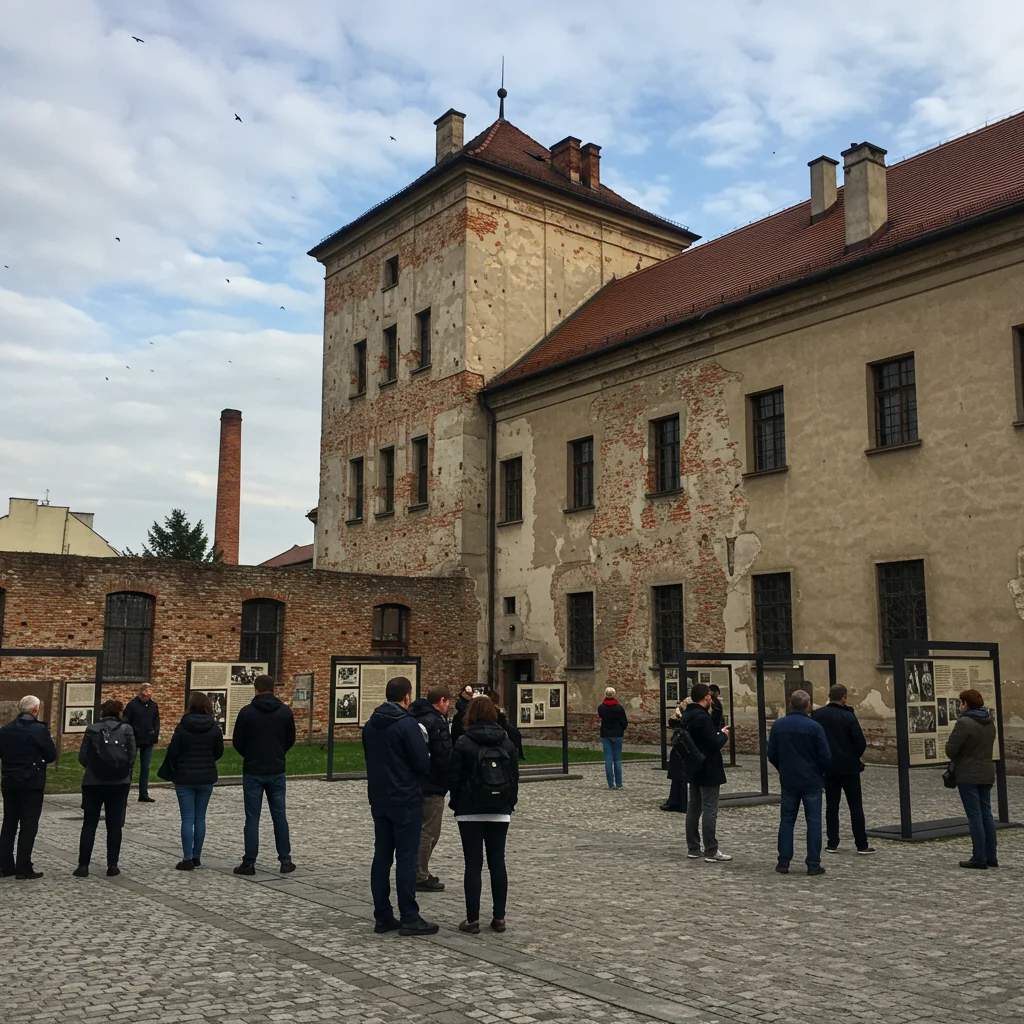
Who Was Oskar Schindler?
Oskar Schindler was a German industrialist who owned the enamelware factory that now houses the museum. During the Second World War, he risked his life and fortune to save over 1,000 Jewish workers from deportation and death, a story immortalized in the film Schindler’s List.
The Historical Importance of Schindler’s Factory
The factory stands as a testament to the choices individuals make during times of unimaginable adversity. Its exhibits detail the experiences of Krakow’s Jewish community, the brutality of Nazi occupation, and the acts of compassion that changed the course of many lives.
What Makes a Small Group Tour Unique?
Choosing a small group tour at Schindler’s Factory transforms a standard museum visit into a personal, interactive journey. Smaller groups foster a sense of camaraderie and provide opportunities for thoughtful discussion.

Benefits of Small Group Tours vs. Large Groups
Small group tours offer several advantages over larger groups, particularly in historically rich and emotionally charged environments.
Personalized Experience
With fewer participants, guides can tailor their commentary to the group’s interests and offer more personalized attention. This creates a more intimate atmosphere where every guest feels included.
Opportunities for In-Depth Questions
A small group setting encourages open dialogue. Guests are invited to ask questions and share observations, leading to deeper understanding and connection with the material.
Enhanced Engagement with the Guide
Guides can more easily interact with each visitor, sharing stories and insights that might be lost in a larger crowd. This engagement helps bring history to life in a meaningful way.
More Comfortable Pace and Flexibility
Smaller groups can move at a relaxed pace, allowing time for reflection and absorbing the exhibits without feeling rushed or crowded.
Overview of Schindler’s Factory Museum
The Schindler’s Factory Museum is located in Krakow’s Zabłocie district. Its exhibits trace the story of the city during the occupation and highlight the extraordinary actions of Oskar Schindler.
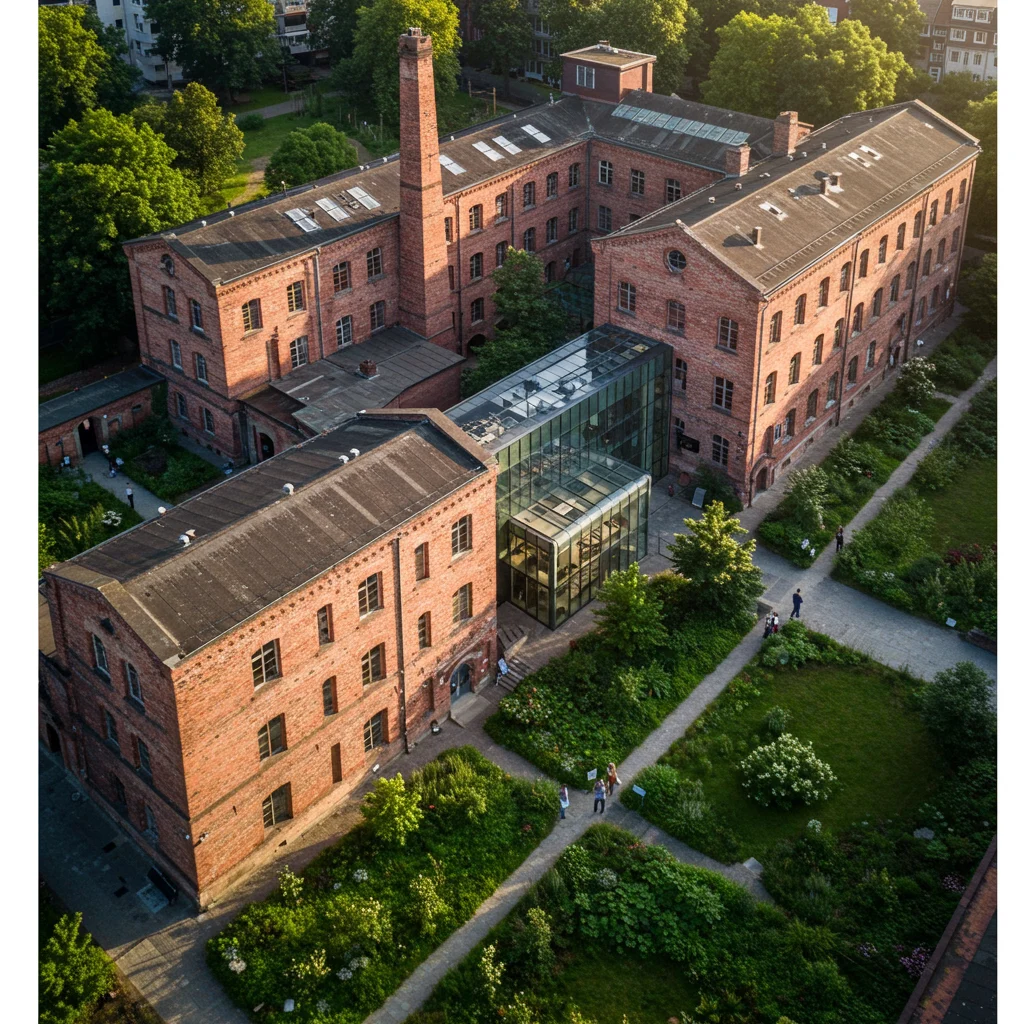
Location and Accessibility
Schindler’s Factory is situated at ul. Lipowa 4, a short distance from Krakow’s city center. The area is accessible by public transport, taxi, and on foot, making it convenient for visitors to reach.
Museum Layout and Main Exhibits
The museum is thoughtfully organized to guide visitors through Krakow’s wartime history, with a mix of permanent and temporary exhibitions.
Permanent vs. Temporary Exhibitions
Permanent exhibits focus on the Nazi occupation of Krakow, daily life during the war, and Schindler’s efforts to protect his workers. Temporary exhibitions often feature related themes, such as post-war recovery or personal stories from survivors.
Interactive Displays and Multimedia
The museum uses multimedia installations, archival footage, and authentic artifacts to engage the senses and emotions. Interactive elements invite visitors to step inside reconstructed rooms, listen to survivor testimonies, and witness the realities of wartime Krakow.
Planning Your Visit
A successful tour begins with thoughtful planning. Understanding the best times to visit, ticketing options, and transportation choices will help you make the most of your experience.

How to Book a Schindler’s Factory Guided Tour
Booking a guided tour in advance is highly recommended, especially for small groups where availability can be limited. You can find tours and secure your spot through trusted platforms like Viator, which offer user reviews and a variety of tour options.
Best Time to Visit Schindler’s Factory
Weekday mornings typically see fewer crowds, offering a quieter and more contemplative atmosphere. Visiting during off-peak hours enhances your ability to absorb the exhibits and engage with your guide.
Opening Hours and Tour Schedules
The museum is generally open daily, with extended hours in the summer. Guided tours are scheduled throughout the day, but it is wise to check current times and book in advance to secure your preferred slot.
Ticket Prices and Discounts
Ticket prices vary depending on the type of tour and whether you qualify for student, senior, or group discounts. Some packages include entrance fees, while others may require separate admission. Always review details before booking.
What to Know Before You Go
Preparing for your visit will help you feel comfortable and ready to engage fully with the museum’s offerings.

Who Is the Small Group Tour Suitable For?
Small group tours are ideal for travelers seeking a more personal and meaningful experience. They suit families, couples, friends, and solo visitors interested in history and human stories.
Age Restrictions and Accessibility
While the museum welcomes visitors of all ages, some exhibits are emotionally intense and may not be suitable for young children. The facility is accessible for those with mobility challenges, with elevators and ramps available throughout.
What Should You Wear and Bring?
Comfortable footwear is recommended, as the tour involves walking and standing for extended periods. Dress in layers to accommodate varying indoor temperatures. Consider bringing a water bottle and a small notebook for jotting down reflections.
How Long Does the Guided Tour Last?
Most guided tours last between 1.5 and 2.5 hours, providing ample time to explore the main exhibits and participate in discussions without feeling hurried.
Meeting Point and Getting There
Tours typically begin at the main entrance on Lipowa Street. Arriving a few minutes early ensures a prompt start and gives you time to meet your guide and fellow participants.
Getting to Schindler’s Factory from Krakow City Center
The factory is located approximately 2 kilometers from the city center. Many visitors enjoy a scenic walk along the Vistula River, while others opt for public transport or taxis.
Transport Options: Tram, Bus, Taxi, Walking
Trams and buses offer reliable connections from central Krakow to the museum, with stops nearby. Taxis are readily available, and walking provides an opportunity to see the city’s architecture and atmosphere along the way.
Parking Facilities Nearby
Limited parking is available near the museum, with several paid lots in the surrounding area. Public transport is often the most convenient choice, especially during busy periods.
What to Expect on the Guided Tour
A guided tour of Schindler’s Factory is structured to lead visitors through the chronology of Krakow’s wartime years, highlighting both the broader context and personal stories.
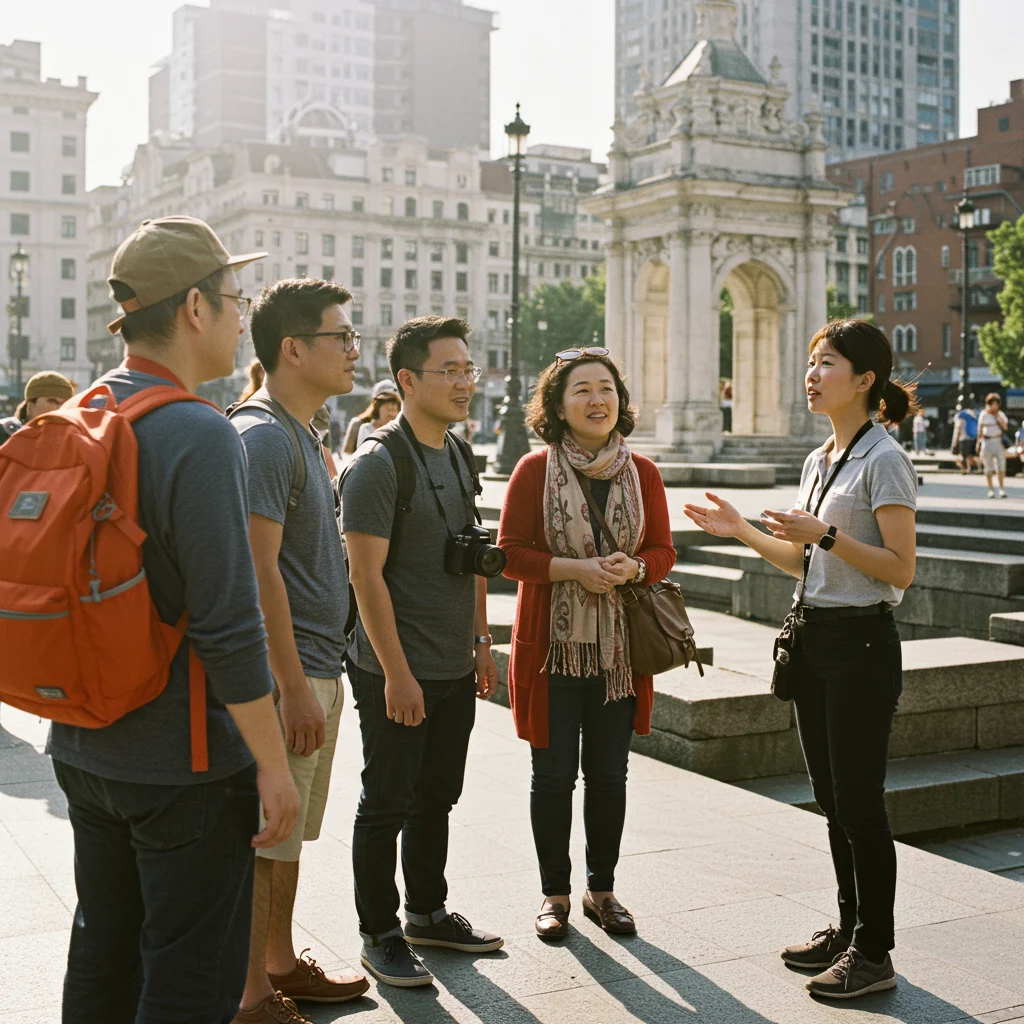
Tour Structure and Flow
The tour begins with an introduction to pre-war Krakow, then moves through the occupation years, the plight of the Jewish community, and the heroic actions of Oskar Schindler. Each section is supported by exhibits, photographs, and first-hand accounts.
Key Highlights of the Tour
Visitors will see Schindler’s actual office, the “List Room,” and the factory floor, as well as immersive multimedia installations. Guides share poignant anecdotes, making the history tangible and immediate.
Stories Shared by the Guide
Guides often recount personal testimonies from survivors and descendants, adding a deeply human layer to the historical facts. These stories create powerful moments of reflection and empathy.
How Guides Enhance the Experience
Expert guides are the heart of the small group tour experience, transforming the museum visit into an engaging and educational journey.

Guide Qualifications and Expertise
Guides are trained historians or local experts with deep knowledge of Krakow’s wartime history. Their passion and expertise ensure that each tour is both informative and respectful of the subject matter.
Multilingual Tour Options
Tours are available in multiple languages, making the museum accessible to a global audience. Be sure to check language availability when booking, especially if traveling with non-English speakers.
Opportunities for Interaction and Questions
Small groups foster an environment where visitors feel comfortable asking questions and engaging in meaningful dialogue. This interaction can lead to unexpected insights and memorable moments.
As experts often say:
“History is not just about dates and events—it’s about the stories of people who lived, struggled, and found hope even in the darkest times.”
Notable Exhibits and Areas Covered
The museum’s exhibits are meticulously curated to provide a comprehensive understanding of Krakow’s experience during the war, as well as Schindler’s remarkable efforts.
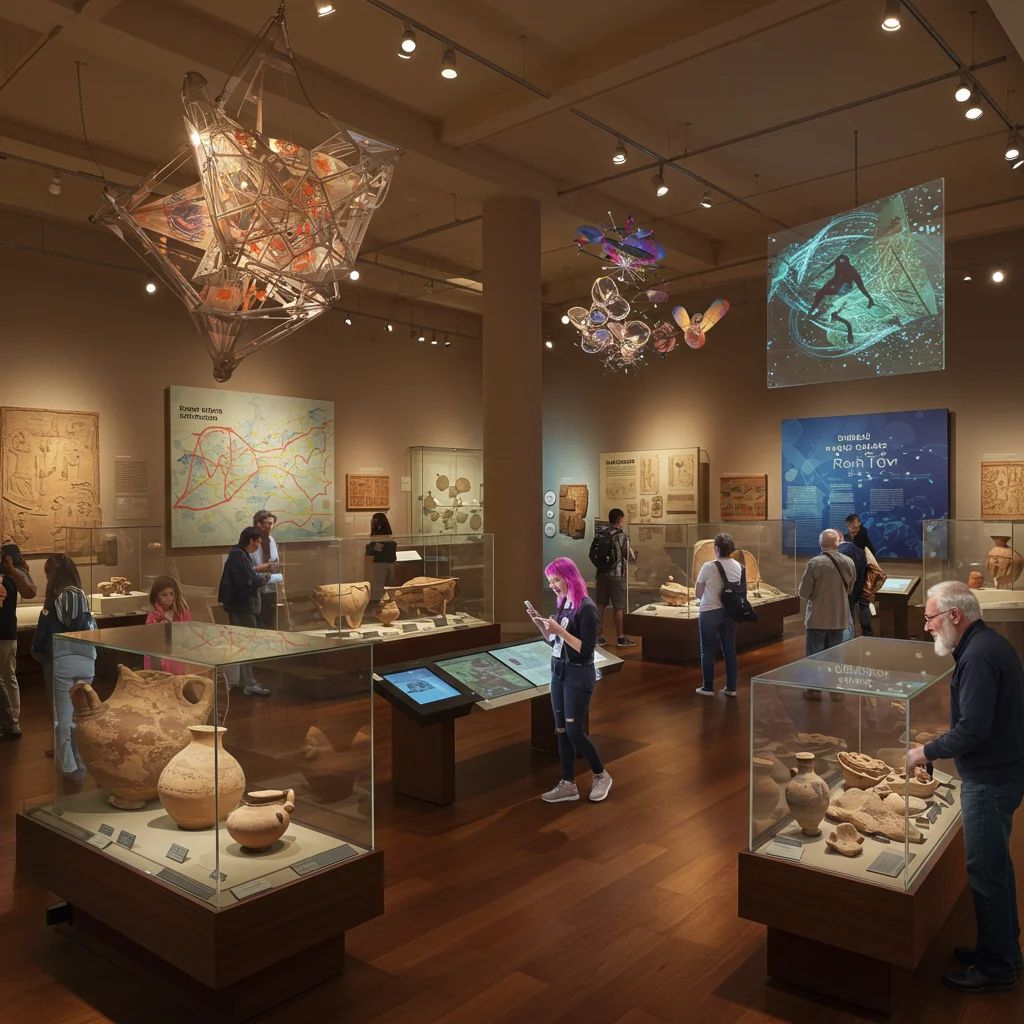
The Enamelware Factory Floor
Stepping onto the original factory floor, visitors sense the echo of daily life and labor during the war years. Machinery, tools, and workspaces evoke the atmosphere of the era.
Schindler’s Office
Schindler’s preserved office is a focal point of the museum. Personal items, documents, and photographs reveal the complexities of his character and the decisions he faced.
The List Room
The “List Room” pays tribute to the workers Schindler saved. Their names are displayed on the famous list, surrounded by documentary materials and moving testimonies.
Ghetto and Occupation Exhibits
These exhibits recreate the cramped and perilous conditions of the Krakow Ghetto. Artifacts and interactive displays convey the daily struggles and acts of quiet defiance by residents.
Multimedia Installations and Immersive Experiences
Soundscapes, video projections, and reconstructed environments draw visitors into the world of wartime Krakow. The sensory elements create a vivid, unforgettable experience.
Learning About Krakow During WWII
Schindler’s Factory provides a comprehensive education on Krakow’s wartime history, helping visitors understand the broader context of the events depicted.
The Nazi Occupation of Krakow
The museum details the impact of Nazi occupation on Krakow’s residents, including forced labor, deportations, and the transformation of daily life under oppressive rule.
Life in the Krakow Ghetto
Exhibits illustrate the harsh realities faced by the Jewish community, from overcrowding and starvation to acts of solidarity and resistance.
Stories of Survival and Resistance
Personal accounts bring to light the courage of those who resisted and the resilience of families trying to survive. The narratives are both harrowing and inspiring, much like those told on other small group tours such as the Cu Chi Tunnels Small Group Tour, where guides also share firsthand stories of perseverance.
Oskar Schindler’s Role in Saving Lives
Through archival materials and survivor testimonies, the museum honors Schindler’s legacy as a man who chose to act with compassion in the face of immense danger.
Emotional Impact of the Tour
A visit to Schindler’s Factory is often described as deeply moving, prompting reflection on the consequences of hatred and the power of individual action.

Reflections from Previous Visitors
Many guests report leaving the museum with a renewed appreciation for human resilience and a commitment to remembering those who suffered. The quiet, contemplative spaces encourage personal reflection.
Why Is the Tour So Moving?
The combination of authentic artifacts, survivor stories, and immersive displays creates an atmosphere that is both sobering and inspiring. The experience lingers long after the tour concludes.
How to Prepare Emotionally for Your Visit
We recommend preparing for the emotional weight of the exhibits. Take time to process your feelings, and consider discussing your impressions with your guide or fellow visitors afterward.
Practical Tips for a Smooth Experience
A few practical considerations can help you make the most of your visit and avoid any unnecessary stress.

Photography Rules and Restrictions
Photography is permitted in some areas but restricted in others to protect sensitive materials. Always check signage and respect the rules to maintain the dignity of the site.
Cloakroom and Storage Facilities
A cloakroom is available for storing coats and bags. For security reasons, large backpacks may not be allowed inside the exhibit halls.
Food and Drink Options Nearby
Several cafes and restaurants are located within walking distance of the museum, offering a chance to unwind and reflect after your visit.
Accessibility for Visitors with Disabilities
The museum is committed to accessibility, with ramps, elevators, and wheelchair-friendly restrooms available throughout the facility.
What Are the Group Size Limits?
Small group tours typically accommodate between 8 and 15 participants, ensuring a comfortable and engaging atmosphere for everyone involved.

Is the Tour Suitable for Children?
While children are welcome, we encourage parents to consider the emotional intensity of the content. Older children and teenagers with an interest in history often find the tour educational and meaningful.
What Languages Are Available for the Tour?
Guided tours are offered in a variety of languages, including English, Polish, German, French, and Spanish. Confirm your preferred language when booking to guarantee availability.
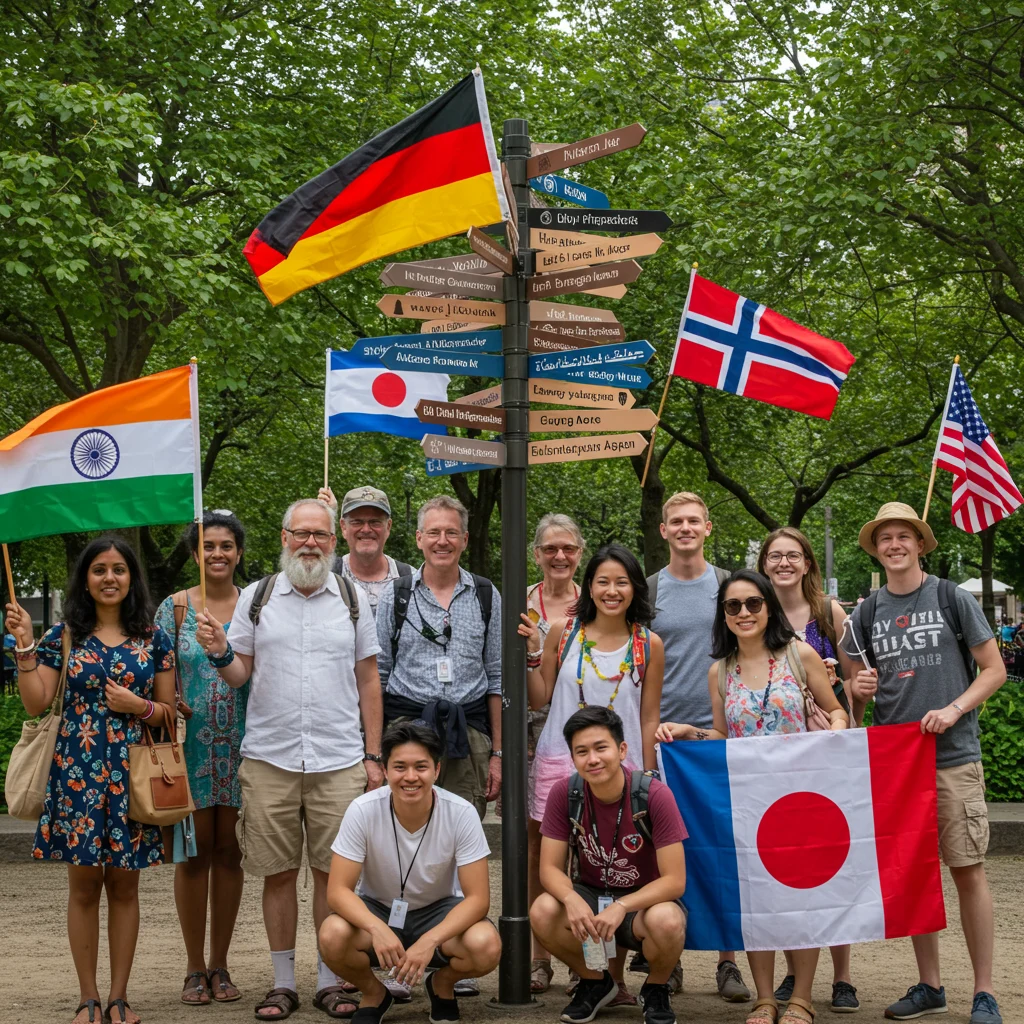
Private vs. Small Group Tours: Which Should You Choose?
Private tours offer maximum flexibility and personalized attention, ideal for families or groups with specific interests. Small group tours, by contrast, balance intimacy with the opportunity to connect with fellow travelers and share perspectives, similar to what many enjoy on trips such as the Blue Cave Small-Group Boat Tour from Dubrovnik.

Combining Schindler’s Factory with Other Krakow Attractions
Krakow is rich in history and culture, and a visit to Schindler’s Factory can be seamlessly integrated into a broader city itinerary.
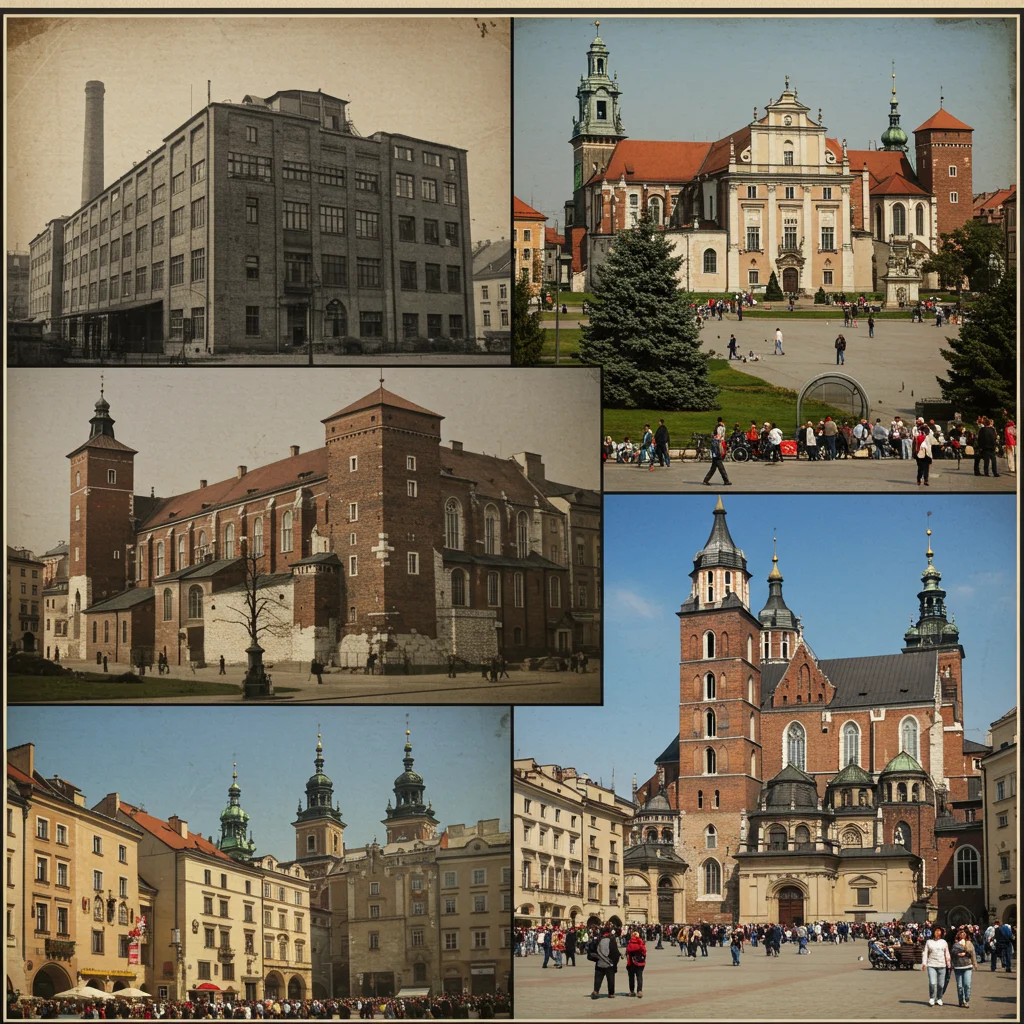
Nearby Sites: Jewish Quarter, Ghetto Heroes Square, and More
The historic Jewish Quarter (Kazimierz), Ghetto Heroes Square, and the Galicia Jewish Museum are all within easy reach. These sites provide additional context and deepen your understanding of Krakow’s past.
Suggested Itineraries for a Day in Krakow
We suggest starting your day at Schindler’s Factory, followed by a stroll through Kazimierz, lunch at a local café, and an afternoon visit to Wawel Castle or the Main Market Square. For those interested in structured sightseeing, you might find inspiration in our coverage of the Changing of the Guard Guided Tour at Buckingham Palace, which demonstrates how guided tours can enrich a city experience.
Frequently Asked Questions About Schindler’s Factory Tours
Many visitors have questions about booking, safety, and practicalities. Here, we address the most common queries.
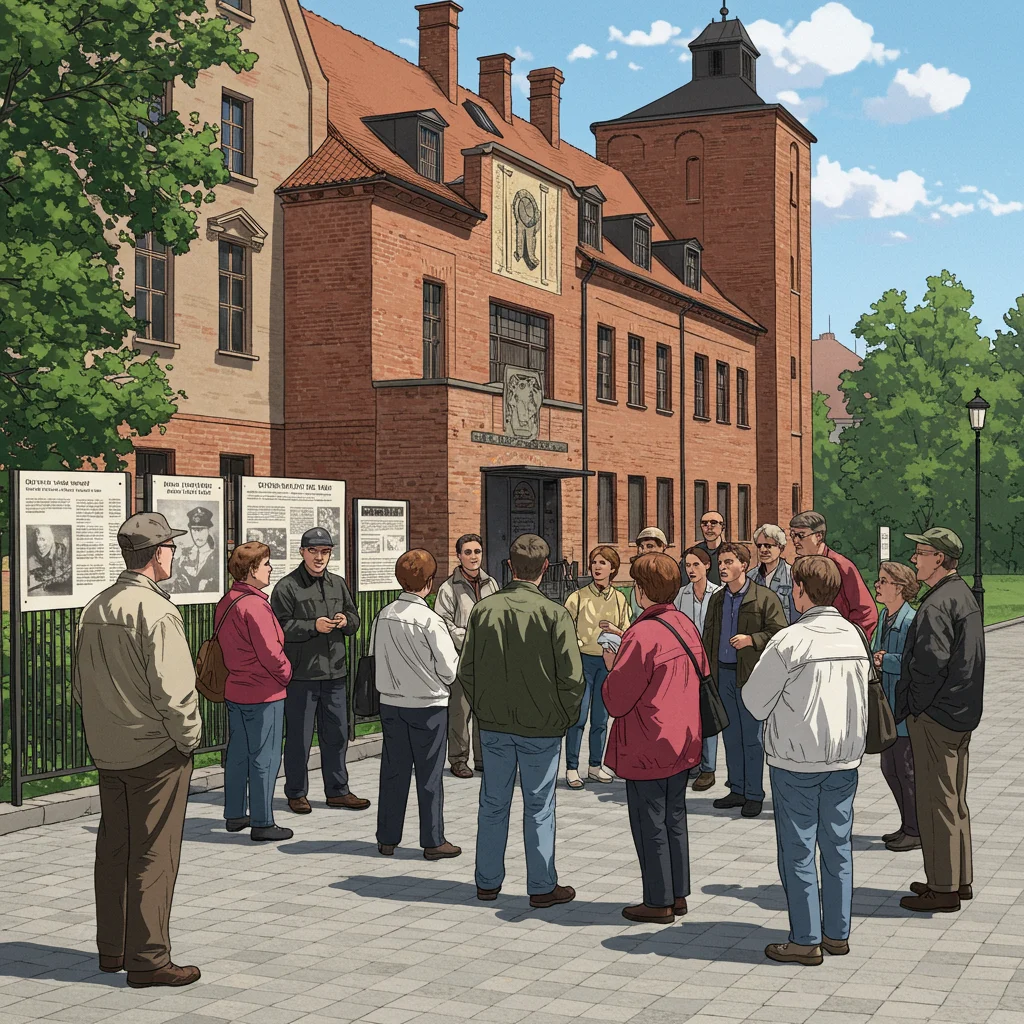
Booking Policies and Cancellation
Most tour providers offer flexible booking and cancellation policies, but it is essential to review terms before purchase. Booking through trusted platforms helps ensure a smooth process.
Safety Measures and COVID-19 Guidelines
The museum adheres to all current health and safety regulations, including enhanced cleaning, social distancing, and mask requirements as needed. Please check for the latest updates before your visit.
Visitor Reviews and Testimonials
Feedback from previous guests provides valuable insight into the small group tour experience.

Recent Feedback from Small Group Tour Participants
Visitors consistently praise the knowledge and empathy of the guides, the depth of the exhibits, and the opportunity for meaningful reflection in a small group setting.
How to Leave Your Own Review
After your visit, you can share your impressions on the booking platform or the museum’s official website. Thoughtful reviews help future visitors prepare and encourage guides in their important work.
Summary: Is a Small Group Guided Tour of Schindler’s Factory Worth It?
A guided tour in a small group offers an unparalleled opportunity to connect with the history of Krakow and the legacy of Oskar Schindler. The personalized attention, in-depth storytelling, and reflective atmosphere create an experience that is both educational and profoundly moving.
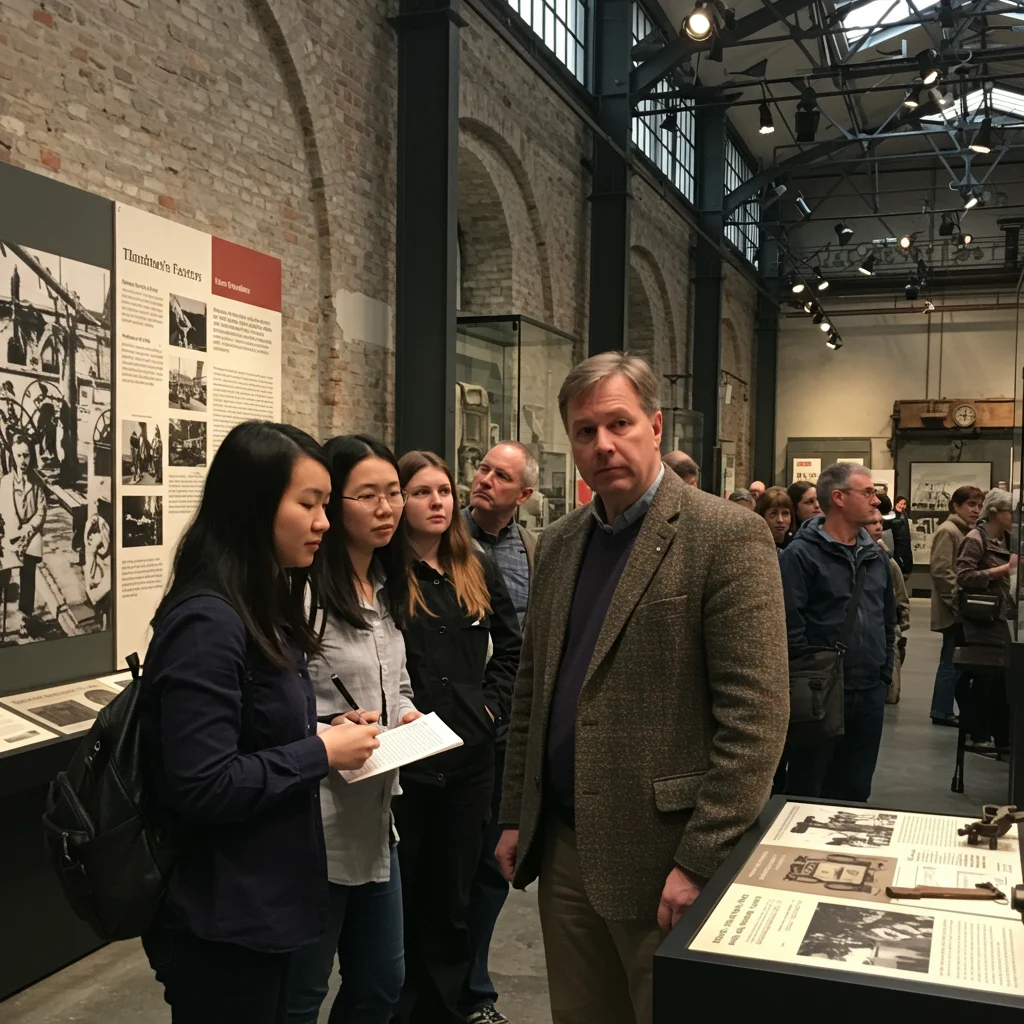
How to Book on Viator
Booking your Schindler’s Factory small group guided tour is simple and secure through Viator. Visit Viator to browse available tours, compare prices, and read recent reviews from fellow travelers. Viator also allows you to book activities in advance, ensuring your spot on the tour and minimizing stress during your trip.

Final Thoughts and Recommendations
A visit to Schindler’s Factory in a small group is a journey through history that will stay with you long after you leave Krakow. We recommend allowing time for reflection, engaging with your guide, and considering the broader context of your experience. For those planning an extended itinerary, combining this tour with other cultural highlights—like the Dublin to Cliffs of Moher day trip—can offer a well-rounded perspective on European history and culture.

Additional Resources and Further Reading
For more information, consult the official museum website or reputable platforms like Viator for booking options.

Books, Films, and Documentaries About Oskar Schindler
- Schindler’s List by Thomas Keneally (book)
- Schindler’s List (film, directed by Steven Spielberg)
- Documentaries on wartime Krakow and Holocaust survivors
Contact Information and Support
Should you require further assistance, contact the museum directly via their website or reach out to your chosen tour provider for up-to-date information on tours, accessibility, and visitor services.

In summary, a small group guided tour of Schindler’s Factory provides not only a window into the past but also a chance to reflect on the power of compassion and courage. For more travel inspiration, resources, and expert tips, we invite you to visit Unisho at https://unisho.us.
Disclaimer: This information is accurate to the best of our knowledge; however, there may be changes or mistakes. Please verify exact details on the Viator booking page.

